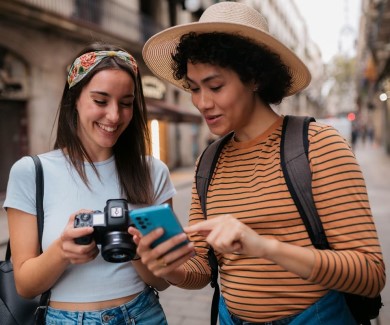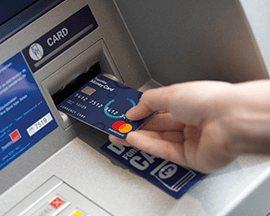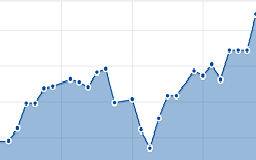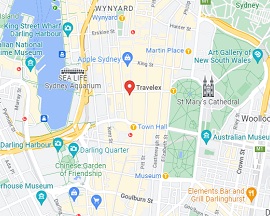Bali Travel Money Guide
Everything about Bali’s currency
A holiday in Bali is synonymous with beaches, temples, parties, culture, food, and more. As one of the world’s premier beach holiday destinations, this Indonesian island attracts thousands of holidaymakers each year.
Find out all you need to know about the Indonesian Rupiah and how best to manage your money in Bali with our Bali travel money guide.
If you’re planning to travel to Bali and need some inspiration, check out our Indonesia Travel Guide.
- Currency: Indonesian rupiah
- Currency code: IDR
- Central Bank: Bank of Indonesia
- Currency symbol: Rp (rupiah)
- Bank notes: Rp 2,000, Rp 5,000, Rp 10,000, Rp 20,000, Rp 50,000, Rp 100,000
The currency used on the island of Bali is the Indonesian Rupiah.
The name Rupiah, or IDR, is Indian in origin, and said to derive from the classical Indian word for silver (rupyakam). Before the country’s independence from Holland, the Rupiah was known as the Dutch Indies Rupiah.
Denominations of rupiah
Rupiah comes in both banknote and coin forms, although the later is less commonly used. Cash is still a preferred payment option in Bali, especially when getting around smaller markets and local attractions.

Rupiah Notes
 Rp 1,000 - these are yellow
Rp 1,000 - these are yellow
 Rp 2,000 - these are grey
Rp 2,000 - these are grey
 Rp 5,000 - these are brown
Rp 5,000 - these are brown
 Rp 10,000 - these are purple
Rp 10,000 - these are purple
 Rp 20,000 - these are green
Rp 20,000 - these are green
 Rp 50,000 - these are blue
Rp 50,000 - these are blue
 Rp 100,000 - these are red
Rp 100,000 - these are red
There are 7 major banknote denominations in Indonesia, with the latest series being released in 2016.
This series features images of traditional dance on one side, and famous national heroes on the other.
The Rupiah comes in notes of 1000, meaning you will most often be dealing with amounts of 10,000 on your travels in Bali - which can get confusing.
Rupiah Coins
Coins do exist and are in circulation in Indonesia, but they are not commonly used. Denominations of coins are 25, 50,100, 200, 500 and 1,000.
Travelex Tip: It can be common to make mistakes with Indonesian money, especially in busy crowded markets. Take your time to read banknotes properly to avoid handing over the wrong amount.


In Bali, both cash and card can be used, so it’s important to have both options readily available to make payments. From exchanging, to buying, to spending, the rupiah can be used flexibly in Bali.
Rupiah Coins and Notes
Rupiah comes in denominations of both notes and coins. For easy use, it may be helpful to remember that there are seven different bank notes and six coins. All notes are different in colour, and coins are separated by values of five, tens or hundreds. Although card may be accepted in larger Bali cities such as Denpasar, cash may be preferable in surrounding villages such as Ubud and Kuta.
Travellers can use international ATMs in Denpasar and other major towns to withdraw cash and use it for further travel. They can also buy IDR in advance before travelling.
Special Offer
Load AUD on your Travelex Money Card and save when spending in Bali!
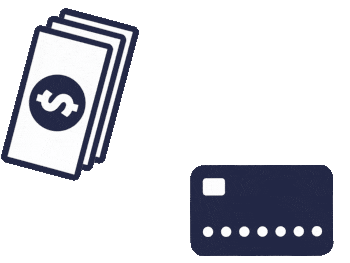
- Free Online AUD Load and Top-Ups
- $0 International ATM Fees
- Unlimited free ATM withdrawals
- Bank beating rates

When travelling to Bali from Australia, it may be helpful to plan ahead and budget for the approximate costs of food, transport and activities around the province. This way, you can exchange money in advance while taking advantage of Travelex’s competitive currency exchange rates.
How much does it cost to travel in Bali?
Below, we cover the average costs of food, transport, and entertainment activities in Bali.

Bali food costs
Food in Bali, Indonesia varies in price depending on the dish and in which area of Bali you purchase the meal. Below are the average prices for some of the most popular dishes enjoyed in Bali.
| Foods in Bali | Average Cost in IDR |
|---|---|
| Babi guling (suckling pig) | 10,000 - 40,000 Rp |
| Sate (per skewer) | 18,000 Rp |
| Mie goreng (stir fry noodles) | 35,000 Rp |
| Nasi ayam (chicken rice) | 52,000 Rp |
Bali transport costs
Different modes of transport also vary in price. The local transport in the province is quite inexpensive, however, travelling via a taxi or hired car may be more convenient. Below are the prices you can expect so you can budget for transport during your travels in Bali.
| Transport in Bali | Average Cost in rupiah |
|---|---|
| One-way local transport ticket | 5,000 Rp |
| Monthly local transport ticket | 150,000 Rp |
| Taxi (per 1km) | 5,000 Rp |
| Car hire (per day) | 71,000 Rp |


Activity prices in Bali
There are many fun activities and places to explore in Bali. It may be a good idea to find out the prices of these activities first so you can budget before you travel. Below are some prices.
| Entertainment Activities in Bali | Average Cost in rupiah |
|---|---|
| Temple admission | 30,000 Rp |
| Adventure park admission | 800 Rp |
| Sacred monkey forest sanctuary admission | 40,000 Rp |
Bali visa costs
A visa-on-arrival is required when travelling from Australia to Bali. A Bali visa costs approximately 50 AUD or 500,000 Rp. This visa is valid for up to 30 days.
Common Money Phrases in Indonesian
If you are going on holiday to Bali, knowing how to say and understand the major amounts of notes you’ll be using will come in handy. We’ve included a brief language guide on major notes below. If you are going on holiday to Bali, knowing how to say and understand the major amounts of notes you’ll be using will come in handy. We’ve included a brief language guide on major notes below.
Most Balinese people will speak both the Indonesian, and Balinese dialect. However, because many Indonesians come to Bali from other islands to work, Indonesian is the most common language used within the tourism sector.
You may also find that many people speak English in Bali. However, that doesn’t mean you can’t learn a few useful phrases to rattle off on your travels! We’ve rounded up a list of some handy money-related phrases in Indonesian for your trip.
| English | Indonesian |
|---|---|
| Do you speak English? | Bisa bicara bahasa Inggris? |
| How much does this cost? | Berapa harganya? |
| Can I have the bill please? | Boleh minta nota? |
| Too expensive! | Terlalu mahal |
| Can I have it for less? | Boleh kurang? |
| Can I pay on credit card? | Anda terima kartu kredit? |
| I don’t have change | Saya tidak punya kembalian |
| Cheap | Murah |
| Rp 1,000 | satu ribu |
| Rp 2,000 | dua ribu |
| Rp 5,000 | lima ribu |
| Rp 10,000 | sepuluh ribu |
| Rp 20,000 | dua puluh ribu |
| Rp 50,000 | lima puluh ribu |
| Rp 100,000 | seratus ribu |


Monetary customs can change drastically from country to country. Keep these tips and cultural nuances in mind before going to Bali for a smoother time on your holiday.
Bargaining is commonplace on the street and in markets in Bali. Be aware that as a foreigner, you will most likely be offered a higher price when shopping. When bargaining, remember to establish a starting price from the seller, and try to counter-offer from one-third to two-thirds of that price. If all else fails, walk away! The seller may change their minds and go lower.
Tipping isn’t generally expected in Bali. However if you’re really happy with the service a 10% tip is appropriate. Check that there is no service charge already on your bill before tipping.
If you are going to change money in Bali, avoid doing it on national holidays or weekends. Exchange rates are generally less favourable on these days due to official rates not being accessible as banks are closed.
The official currency in Bali is the Indonesian rupiah (IDR). It is often mistaken for Bali Dollar or Bali Rupee.
Yes, you can use your bank card to withdraw cash in Bali, however depending on your bank, there may be associated fees.
Generally no, you cannot use Australian Dollars in Bali. The only currency used in Bali is the Indonesian Rupiah.
You may be able to use AUD as a form of payment in certain larger hotels and other establishments; however the exchange rate may not be as favourable.
Go-Jek is a ride sharing app that is extremely common in Indonesia. Much like Uber, you can order bikes, cars, courier services, food delivery and more via your phone. There are currently over 11,000 Go-Jek drivers in Bali.11 Generally, taking a Go-Jek is cheaper than taking a taxi.
Travel to Japan FAQ
The official currency in Bali is the Indonesian rupiah (IDR). It is often mistaken for Bali Dollar or Bali Rupee.
Yes, you can use your bank card to withdraw cash in Bali, however depending on your bank, there may be associated fees.
Generally no, you cannot use Australian Dollars in Bali. The only currency used in Bali is the Indonesian Rupiah.
You may be able to use AUD as a form of payment in certain larger hotels and other establishments; however the exchange rate may not be as favourable.
Go-Jek is a ride sharing app that is extremely common in Indonesia. Much like Uber, you can order bikes, cars, courier services, food delivery and more via your phone. There are currently over 11,000 Go-Jek drivers in Bali.11 Generally, taking a Go-Jek is cheaper than taking a taxi.
